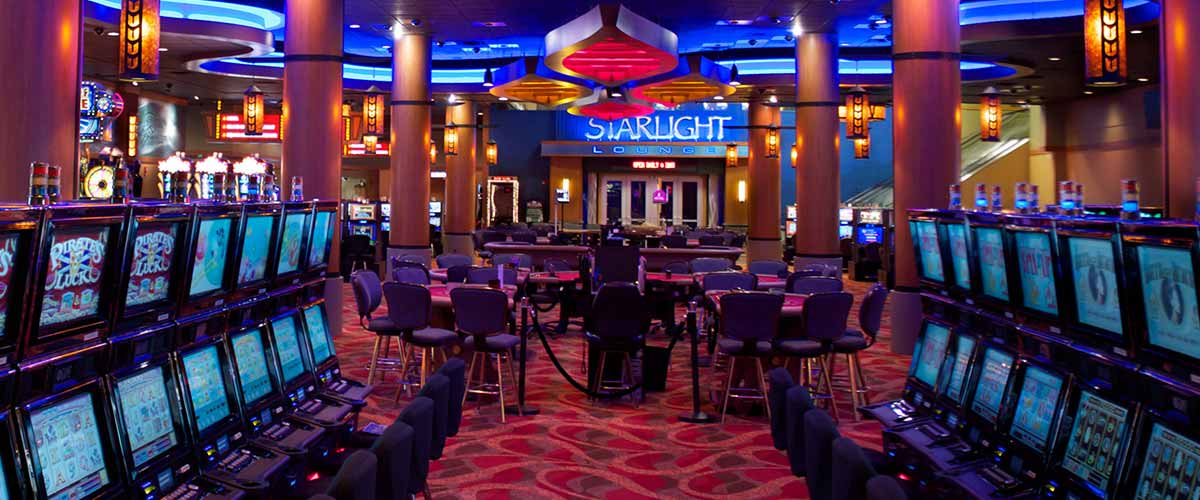
In the dynamic world of gambling, casino games have long seized the interest of players around the world. These options, spanning traditional card options like poker to the rotating reels of slots, offer an captivating combination of chance and tactics. While chance undeniably plays a important role in determining outcomes, the role of expertise in many casino options cannot be ignored. Understanding how expertise affects the game can elevate not only a player’s engagement but also their likelihood of achievement.
As we explore further the mechanics of gambling options, it becomes clear that some demand a solid grounding of understanding and tactics. Activities like blackjack require more than just fortune; they demand strategic thinking, mental insight, and calculated decision-making. In contrast, other activities, such as roulette and fruit machines, are primarily driven by chance, allowing players to rely solely on luck. This distinction raises thought-provoking questions about what really drives achievement in the world of casinos and how a gambler’s abilities can sway the outcome in their benefit.
Comprehending Expertise vs. Luck in Gambling Activities
In the sphere of casino games, the debate between skill and luck is a enduring one. Several games are often categorized into two groups: those that depend predominantly on randomness, such as slots and roulette, and those where skill plays a significant role, like poker and 21. The distinction is important because it influences not only gameplay strategies but also the approach players adopt when engaging with these games. While luck can play a critical role in the immediate, skilled players can increase their odds of winning over the extended period in skill-based games.
Skill-based games, particularly poker, necessitate players to comprehend odds, human behavior, and game theory. A seasoned poker player can analyze opponents, make calculated bets, and know when to fold, all of which can lead to more successful outcomes. On the other hand, in games that are purely based on chance, no amount of skill can alter the odds. This implies that while a player may win big in one session, their success may frequently be at the mercy to the vagaries of random outcomes rather than any tactical expertise.
Ultimately, both skill and luck exist together in the world of casino games, forming a vibrant environment for players. While games of chance can provide excitement and instant gratification, proficiency and strategy in skill-based games offer a deeper level of engagement for those prepared to invest time in honing their craft. This interaction between skill and luck defines the journeys of players and influences their relationship with the games they choose to play.
The Impact of Ability on Casino Results
In the realm of gambling games, proficiency plays a significant role in determining the results, especially in activities where tactics and decision-making are paramount. For example, in the game of poker, competitors must examine opponents, calculate odds, and make strategic bets to enhance their chances of succeeding. Unlike games that depend purely on luck, such as slots or roulette, this game demands an understanding of both the rules and the behavior of other participants, making skill a vital component of victory.
Other strategy-based activities, like the game of blackjack, also emphasize the significance of player skill. Knowledge of basic strategy, card counting, and when to hit or stand can dramatically influence the house edge. A skilled blackjack player can reduce this edge and boost their chances of winning over time. This contrasts sharply with games that do not allow for such tactical play, showcasing how the level of skill influences the possibility for favorable results.
Moreover, even within games deemed primarily chance-driven, like craps, the decisions made by gamblers can impact their overall success. Choosing the right bets, understanding the likelihoods of different results, and controlling one’s bankroll are essential factors that can enhance a player’s experience and results. Thus, while luck remains a component in gambling, ability can significantly affect how effectively participants navigate these environments, leading to more positive results.
Approaches for Proficient Play in Gaming Establishments
To excel in casino games, players must develop a solid understanding of the rules and odds involved in various games. This foundational knowledge enables individuals to make wise choices, especially in skillful games like Texas Hold’em and 21. Becoming acquainted oneself with game tactics, such as card counting in blackjack or recognizing betting patterns in poker, can significantly enhance a player’s chances of winning. Sharpening these strategies through mock games or low-risk games allows players to improve their skills without putting substantial amounts of cash at stake.
One more key approach is budgeting. Players should create a budget before going into the gaming establishment and stick to it strictly. This involves determining how much they are willing to lose and setting limits on how much they will wager in each session. By keeping a controlled approach to gambling, players can maintain their play and reduce the chance of major losses. Additionally, taking breaks can help preserve a clear head and prevent rash decisions that often lead to unfavorable outcomes.
Finally, emotional control is essential in the intense environment of a casino. Players must be adept at controlling their emotions, particularly during periods of success or defeats runs. tỷ lệ cá cược Staying focused and not allowing emotions influence gameplay can lead to more rational decisions. Methods such as deep breathing or walking away from the gaming table during heated moments can help maintain calmness. By cultivating a steady state of mind, players can approach casino games with confidence and expertise, thereby improving their overall gaming experience and results.